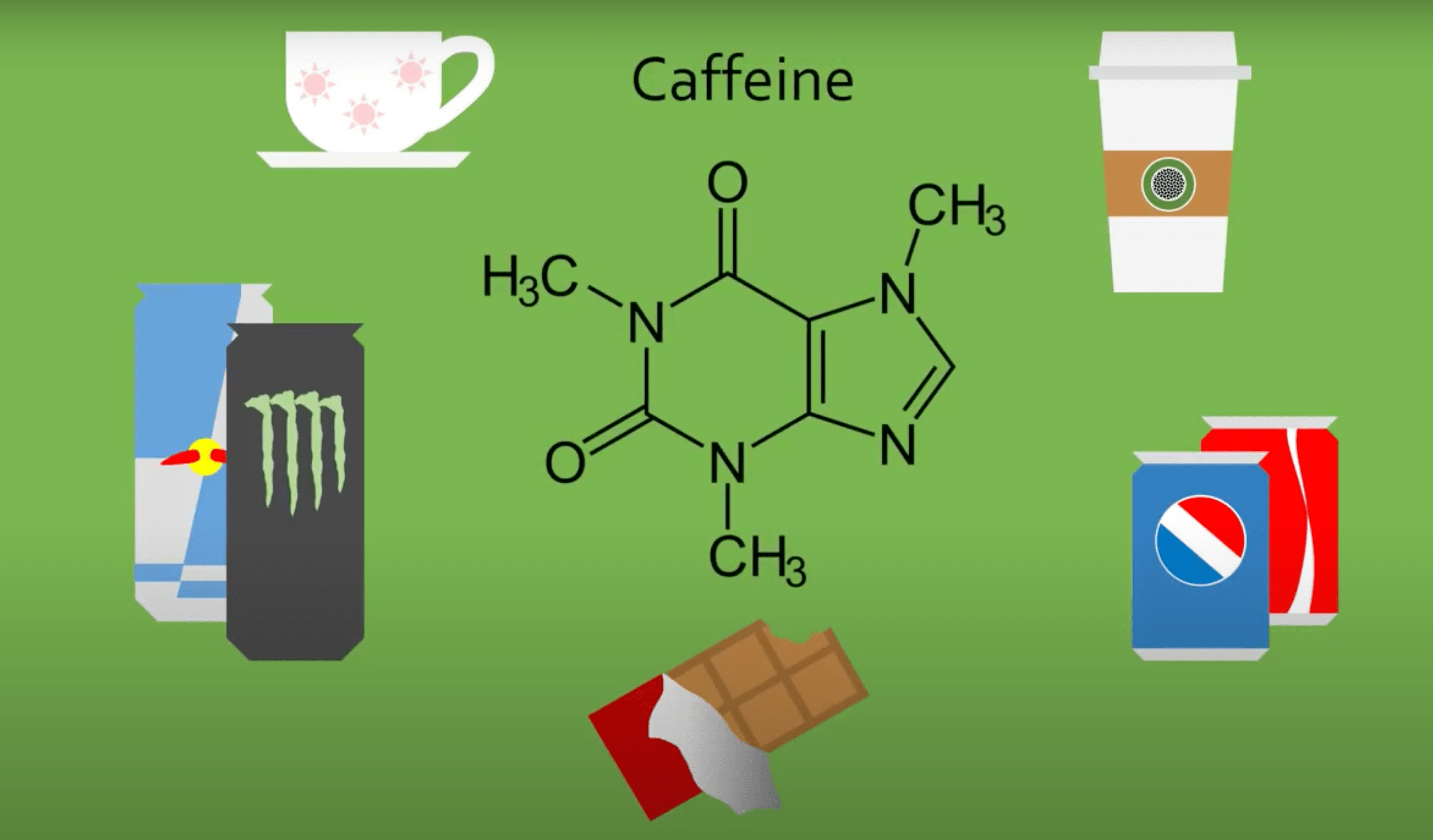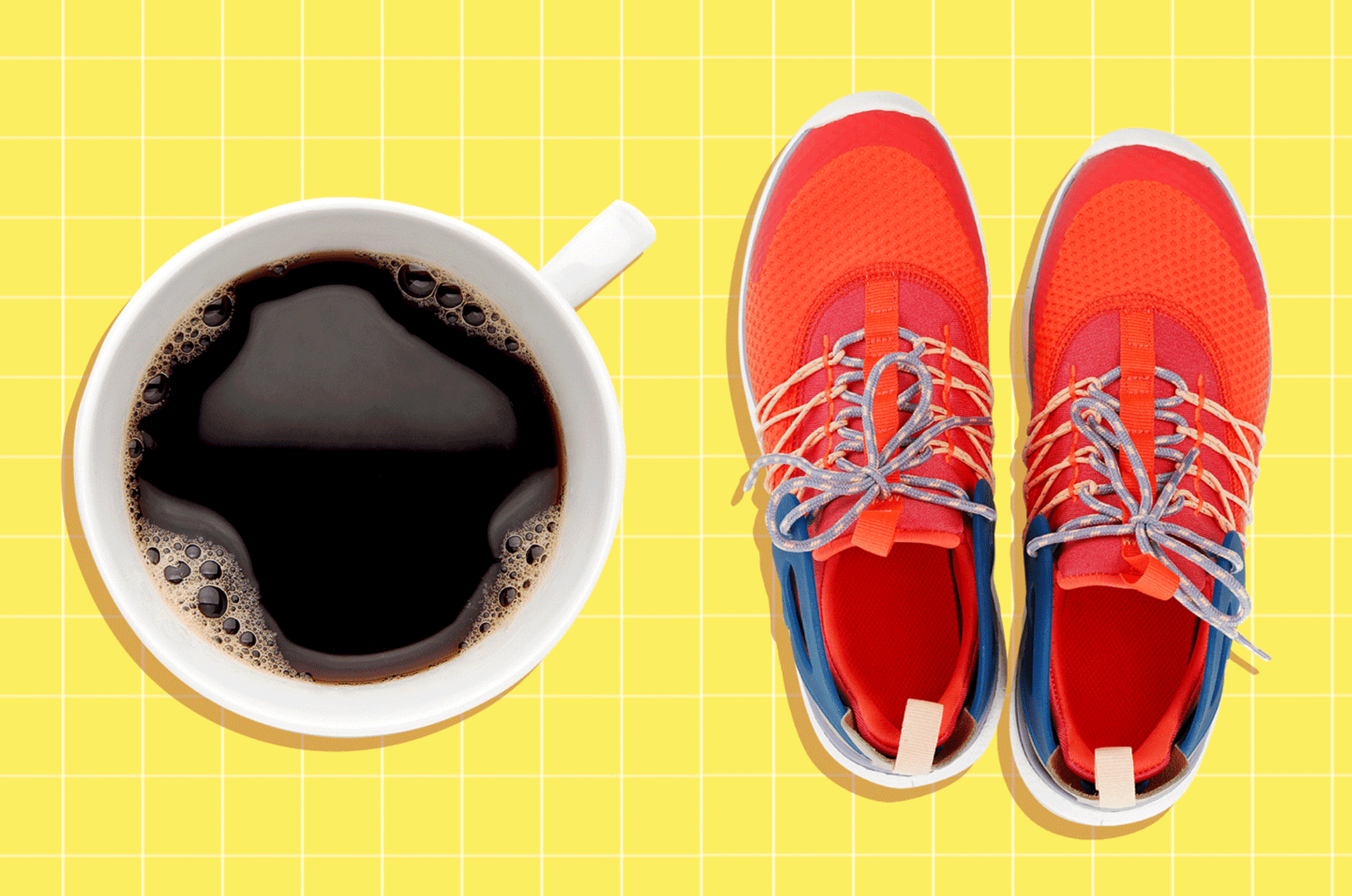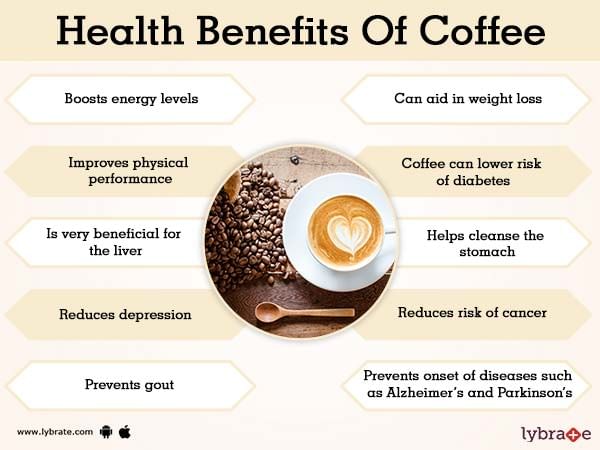Substance Spotlight: Caffeine
Don't talk to me until I've had my morning coffee.
Do you and the delightful, calming Joe Pera have this sentiment in common? If so this post may be for you.
/cdn.vox-cdn.com/uploads/chorus_image/image/63194080/Decaf_Art.0.png)
Image courtesy of: https://www.vox.com/the-goods/2019/3/7/18253668/decaf-coffee-caffeine-stigma
9 out of 10 adults in North America start their day with caffeinated tea or coffee.
Are you among them? If so, have you ever wondered whether this habit is good or bad for your health? This substance spotlight post on caffeine will discuss in detail:
- what exactly caffeine is,
- a brief history of its most common sources,
- the recommended dosage and typical half-life,
- how it actually works in the body,
- natural and unnatural sources of caffeine,
- potential drawbacks and benefits for your health and
- its potential impact on athletic performance!
DISCLAIMER: This post is speaking to caffeine consumption and health generally. It does not discuss specific, genetic or autoimmune conditions and caffeine recommendations in relation to those. As always, if you have any concerns or questions about your health, go have a chat with a trusted medical professional who knows much more than me!
If you'd prefer to watch a video of this information, you can do so here:
And, just so you know, the TL;DR version of this post is as follows for you busy coffee guzzlers:
Caffeine isn't as bad for you as people once thought, may actually be beneficial for your health, and you can absolutely enjoy it (especially in moderation) guilt-free. If you want more detail and research, read on!
What exactly IS caffeine?

Image a screenshot thanks to this great video on Caffeine and Adenosine Receptors
Below, find a brief overview to the substance, its most common natural sources, and a short history of its evolution thanks to Healthline
- First off, caffeine is the most commonly consumed psychoactive* substance on Earth. *more on this under "how does caffeine work"
- It's a natural stimulant that is metabolized (broken down) in the liver.
- It is most often found in nature in coffee, tea, and cacao plants.
- Caffeine works by stimulating the brain and central nervous system, helping you to stay alert by preventing the onset of tiredness (again, more on this in "how does caffeine work")
- Historians can track the first brewed tea to as far back as 2737 BC.
- Coffee was reportedly discovered a few thousand years later by an Ethiopian shepherd who noticed the extra energy it gave his goats. (insert adorable mental image of excitable baby goats hopping about 🐐you're welcome).
- From there, both tea and coffee made their way from Asia (tea) and Arabia/Africa (coffee) to Europe at about the same time around in the 16th century. Given that impure water wasn't safe to drink at that time, when Europe's populace made the switch from a largely beer-and-wine, alcohol/depressant-based-intake to a largely tea-and-coffee, caffeinated/stimulant-based-intake, it really helped Western Civilization level up its productivity and social interaction game!
- Caffeinated soft drinks showed up around the late1800s and energy drinks came soon after.
- Today, 80% of the world's population consumes caffeine each day, and in North America, that number is 90%!
Recommended Dosage, Half-life of Caffeine
The FDA recommended dose of caffeine is 400 mg or less per day. For reference, one 8oz cup of coffee has an average of ~95mg of caffeine. So, the typical American daily intake of 2-3 cups is equivalent to ~200-300mg of caffeine. As a side note: actual overdosing on caffeine is extremely rare and difficult to do through caffeinated beverages alone.
The half-life of caffeine (time taken for the body to eliminate one-half of the caffeine taken in) ranges widely among individuals, and can depend on a number of factors including but not limited to your age, body weight, pregnancy status, medication intake, and liver health. However, In healthy adults, the half-life is approximately 5 to 6 hours.
What this means is that if, for example, you have your last cup of coffee around noon (~100mg), by 6 PM you'll have about half of that (~50mg) caffeine left in your system. Keep half-life in mind as you experiment with your own personal caffeine tolerance and cut your caffeine consumption off early enough in the day so that the caffeine you consume does not interfere with your ability to get sound sleep!
Curious how much caffeine is in your beverage of choice? Check out the Caffeine content of multiple beverages at The Caffeine Database!

How does Caffeine Work?
Note: you can read in great detail the research behind mechanisms of adenosine on the Central Nervous System here and its psychostimulant effects here or watch a handy video here OR, I'll provide a brief overview of what adenosine is and how caffeine blocks its effects below!
- First off, caffeine is absorbed from the gut into the bloodstream (usually within 15-45 minutes of consumption).
- From there, it travels to the liver and is broken down into compounds that can affect the function of various organs.
- Caffeine's main effect is on the brain. That's is why it is often referred to as a "psychoactive" drug (because it acts on our psychology, or our mind and resulting behavior), even though it is naturally occurring.
- Caffeine functions by blocking the effects of adenosine. Adenosine is a neurotransmitter that relaxes the brain and makes you feel tired.
- Normally, adenosine levels build up over the day, making you increasingly sleepier as the day goes on.
- By connecting to adenosine receptors in the brain (without activating them), caffeine blocks the effects of adenosine, leading to reduced tiredness or enhanced alertness.
- Caffeine may also increase blood adrenaline levels and increase brain activity of the neurotransmitters dopamine and norepinephrine. Dopamine and Norepinephrine regulate many functions in the body related to movement, reward, memory, motivation, arousal, alertness, and attention, and many more.
Potential Dangers of Excessive Caffeine
We've likely all experienced the jittery, accidentally-too-wired-and-edgy feel of having consumed one cup of coffee too many. While caffeine is a handy tool we can strategically use to stay alert and productive, we need to remember that there is such a thing as too much of a good thing. In the case of caffeine, it's smart to remember that more is not necessarily better. Excessive caffeine consumption (usually defined as 600mg and up) can result in negative consequences, including:
- dizziness
- tachycardia (fast heart rate)
- stomach discomfort (caffeine increases gut motility - movement- thus could exacerbate pre-existing gastrointestinal, IBS or IBD symptoms of diarrhea and result in dehydration),
- increased nervousness / anxiety / stress, especially to those already predisposed,
- vomiting,
- insomnia or sleep disruption,
- irritability, headaches, or migraines,
- (in some individuals) high blood pressure,
- cardiac arrhythmias,
- tremors or seizures,
- and even, in rare or extreme cases, death.

Image courtesy of: https://www.theactivetimes.com/healthy-living/13-most-dangerous-energy-drinks
The SOURCE of your caffeine matters!
- Energy drinks are an increasingly popular form of caffeine consumption. However, they often pair high doses of caffeine (~200mg for in a small drink) with high amounts of sugar (~30g)...when the recommended dose is no more than ~25g for women and ~36g for men.
- High-sugar energy drinks also provide a large number of empty calories, which can lead to elevated blood sugar, contributing to higher risk for developing Type 2 Diabetes and of course, a higher prevalence of dental problems.
- Even so-called "zero calorie” energy drinks, sweetened with artificial sweeteners, such as aspartame and Sucralose, can be problematic. These seemingly "consequence free" beverages have the potential to cause uncomfortable bloating, gas and diarrhea for certain people (circling back to potential IBS symptoms).
I could talk a LOT about artificial sweeteners. But, I think that's a post for another day! 😉☺️
Potential Benefits of Caffeine
While there are some dangers to caffeine consumption, especially excess caffeine intake, there are many more potential benefits of caffeine consumption, from cognitive to metabolic.
Cognitive Benefits

Image courtesy of https://www.health.harvard.edu/blog/caffeine-healthy-diet-may-boost-memory-thinking-skills-alcohols-effect-uncertain-201406187219
Perhaps unsurprisingly, given what you now understand about how caffeine works on the brain, there are several established cognitive benefits of caffeine consumption:
- One review reports that after participants ingested 37.5–450 mg of caffeine, they had improved alertness, short-term recall and reaction time.
- Another study linked drinking 2-3 cups of caffeinated coffee per day to a 45% lower risk of suicide.
- A third study reported a 13% lower risk of depression in caffeine consumers.
While these are pretty impressive mental benefits, remember that when it comes to mood, more caffeine is not necessarily better. In fact, one study found that a second cup of coffee produced no further benefits unless it was consumed at least 8 hours after the first cup.
- Finally, multiple studies discuss the possibility that consuming between three and five cups of coffee per day may also reduce the risk of brain diseases such as Alzheimer's (1, 2) and Parkinson's (3, 4) by 28–60% .
Metabolic Benefits
Caffeine consumption may boost your metabolism and speed up weight loss by promoting fat loss, but these effects are likely to remain small over the long term.

Image courtesy of: https://infinitefitnesspro.com/coffee-before-a-workout/
- Because of its ability to stimulate the central nervous system, caffeine may increase metabolism by up to 11% and fat burning by up to 13% (1, 2, 3)
- Practically speaking, consuming 300 mg of caffeine per day may allow you to burn an extra 79 calories per day (4).
- This amount may seem small, but it is similar to the calorie excess responsible for the average annual 2.2 lbs (1kg) in weight gain most Americans experience (5)
- However, a 12-year study on caffeine and weight gain notes that the participants who drank the most coffee were, on average, only 0.8–1.1 lbs (0.4–0.5 kg) lighter at the end of the study period (6).
Caffeine and Athletic Performance Benefits

Image courtesy of: https://www.realsimple.com/food-recipes/recipe-collections-favorites/popular-ingredients/coffee-exercise
- Caffeine may increase the use of fat as fuel (fat oxidation).This is beneficial because it can help the glucose stored in muscles last longer, potentially delaying the time it takes your muscles to reach full exhaustion (1, 2) T
- ranslation: Caffeine can be good for endurance exercise like long distance running and cycling
- Caffeine may also improve muscle contractions and increase tolerance to fatigue (3).
- Translation: Caffeine is potentially beneficial for strength performance, too! More studies needed but initial research is promising.
- A note on the timing of when to consume caffeine for maximum benefit regarding athletic performance: ~60 minutes before exercise is ideal!
- According to ACE Fitness, the widely-believed advantage that caffeine provides via stimulated nervous and respiratory systems, combined with a boost in energy, is significant enough to result in some regulation of the stimulant from the following agencies:
- International Olympic Committee: The IOC has mandated an allowable limit of 12-15 μg of caffeine per ml of urine since a 1962.
- National Collegiate Athletic Association: The NCAA considers urinary concentrations after competition that exceed 15 μg/ml to be illegal.
- World Anti-Doping Agency: does not deem caffeine to be a banned substance, but it has included it as part of the monitoring program, which serves to establish patterns of misuse in athletic competition.
Protection Against Heart Disease, Stroke and Type 2 Diabetes
Evidence shows a 16–18% lower risk of Heart Disease in men and women who drink between one and four cups of coffee each day (1).
Other studies show that drinking 2-4 cups of coffee (2) or green tea (3) per day is linked to a 14–20% lower risk of Stroke.
A recent review notes that those who drink the most coffee have up to a 30% lower risk of developing Type 2 Diabetes (4).
- The authors observed that the risk drops by 12–14% for every 200 mg of caffeine consumed (4).
- Interestingly, consuming decaffeinated coffee was also linked to a 21% lower risk of diabetes. This indicates that other beneficial compounds in coffee can also protect against type 2 diabetes (4).
One thing to keep in mind is that caffeine consumption may raise blood pressure in some people with that genetic predisposition or perhaps with certain conditions. However, this effect is generally small (3–4 mmHg) and tends to fade for most people if they consume it regularly (5, 6, 7, 8)

Image Courtesy of: https://www.lybrate.com/topic/benefits-of-coffee-and-its-side-effects
Many other Potential Health Benefits
Finally, drinking coffee in particular (my caffeinated drug of choice) may also promote a healthy liver, skin and digestive tract. And, it could prolong life and help prevent several diseases!
Coffee:
- Protects the liver: Coffee may reduce the risk of liver damage (cirrhosis) by as much as 84%.
- Promotes longevity: Drinking coffee may decrease the risk of premature death by as much as 30%, especially for women and diabetics (1, 2)
- Decreases cancer risk: 2–4 cups of coffee per day may reduce liver cancer risk by up to 64% (3, 4) and colorectal cancer risk by up to 38% (5)
- Protects skin: Consuming 4 or more cups of caffeinated coffee per day may lower the risk of skin cancer by 20% (6, 7)
- Could Reduce MS risk: Coffee drinkers may have up to a 30% lower risk of developing multiple sclerosis (MS) (8) .
- However, not all studies agree (9)
- Prevents gout: Regularly drinking four cups of coffee per day may reduce the risk of developing gout by 40% in men (10) and 57% in women (11).
- May support gut health: Consuming 3 cups of coffee a day for as few as 3 weeks may increase the amount and activity of beneficial gut bacteria (12).
Takeaways
- For the average person, Caffeine is not as unhealthy as it was once believed to be. In fact, evidence shows that it may be just the opposite!
- Therefore, it's safe to consider your daily cup (or 2-4 cups) of coffee or tea as an enjoyable way to promote good health.
- Just remember: More is not Better, and Source matters!
- Final Reminder: if you have a genetic or autoimmune condition, none of this may apply to you. Always listen to your body and discuss symptoms you may be experiencing with a trusted medical professional!
- Just remember: More is not Better, and Source matters!
Overall, in my personal opinion, the health benefits of caffeine consumption outweigh the risks by far. In addition, the ritual of a morning cup of coffee is something I really enjoy and have no intention of giving up again (although I have done so in the past, for a year! I went cold turkey but would not recommend that, see why below!).
Final Considerations on Caffeine: Desensitization, Tolerance and Dependency
- Physiological and Behavioral Evidence suggests that we can become desensitized to the effects of caffeine and develop a tolerance to it, needing more of the substance to produce the same impact as before (aka developing a caffeine dependency...which is different from an actual drug addiction).
- Therefore, if using caffeine for athletic performance you may want to "save" it for events or pre-workout supplementation to optimize its impact on the body.
- Related to the concept of caffeine dependency, an NPR article suggests that to get the most out of caffeine, we consider taking regular "caffeine holidays" five or six times a year, "I find it to be most useful when I start at a virgin state, so I taper down slowly," the author says. "I switch from coffee to black tea, and then peppermint tea. So when I get that first cup of java again, it's such a great feeling"
- A similar discussion on the potential Benefits of Caffeine Cycling can be found at this link on the MindPump Podcast.

Image Courtesy of: https://www.lybrate.com/topic/benefits-of-coffee-and-its-side-effects
How about you? Did you learn anything new from this post? Will it change anything about your behavior surrounding caffeine consumption? Whether this article put you at ease that likely your morning cup of coffee is doing you no harm, or perhaps helped you identify a potential intolerance or growing dependency, I truly hope you found it useful and informative! 💜